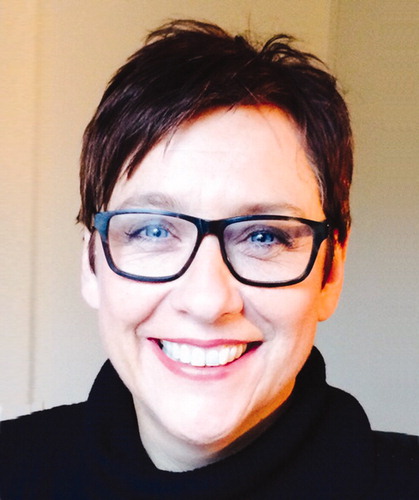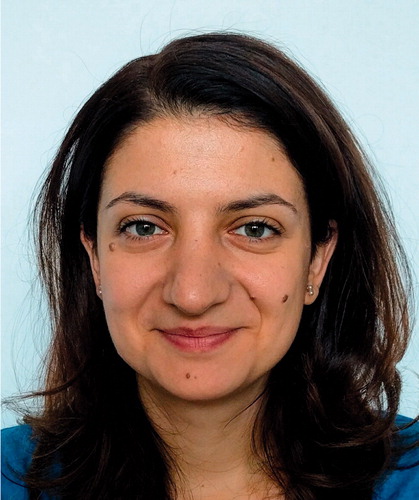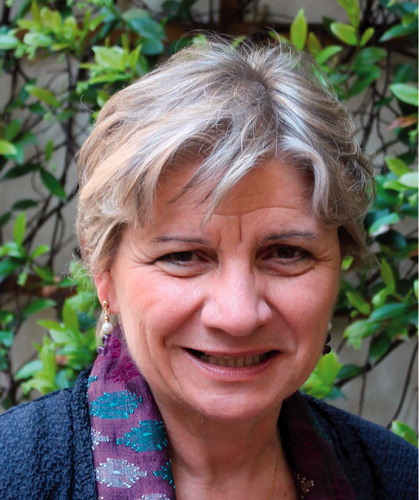New Coeditor
Helen Rowland, BA (hons), DipSw, is a Provisional Teaching and Supervising Transactional Analyst (P) with a psychotherapy and supervision practice in North Yorkshire, United Kingdom, where she has been in private practice since 1995. Having originally trained as a social worker and worked extensively with marginalized and socially excluded communities, Helen has broad interests in the links between politics, society, and individual psychology. A current area of interest is how the theory and practice of transactional analysis may play a role in producing and sustaining conservative ideas about normalcy. Helen teaches workshops on critical theory and postmodernism in psychotherapy and is interested in how we can develop theory to bridge the academic disciplines of sociology and psychology. She has been a member of the Transactional Analysis Journal editorial board since 2015, and her article “On Vulnerability: Personal Reflections on Knowing, Knowingness, and Meaning Making in Psychotherapy” was published in the October 2016 issue of the Journal.
New Editorial Board Members
Beren Aldridge is a Certified Transactional Analyst (P) working as a psychotherapist in clinical practice in the Lake District in the United Kingdom. He has a particular interest in the therapeutic use of groups and communities and, alongside his private practice, he coordinates a farm-based therapeutic community for people with personality disorder diagnoses. He has an MSc in vocational rehabilitation and has lectured at City University, London, and St. Martin’s College, Lancaster.
Alexandra Gheorghe is a Certified Transactional Analyst (P) and psychotherapist in private practice in Bucharest, Romania. She has been part of the TA community in Romania since 2007 and is currently serving as a librarian for the TA library located in Bucharest. She has also published in the Romanian TA Bulletin. After writing her CTA exam, Alexandra became interested in several aspects of the writing process, one being how the intended meaning and vitality are maintained when the content moves from inside the writer to the outside. Her curiosity about this was one of the factors that led her to initiate the “Conversations in TA” project along with three colleagues and friends. They have been doing video interviews with professionals who have written about TA theory, with the focus being on the person behind the theory. The aim of these conversations is to enrich the written content by seeing it in light of the author’s personal and professional journey. Alexandra is involved in writing and editing the content of the project and hopes that by making it available to TA people worldwide, she can give back to a community that has enriched her immensely both personally and professionally.
Susanna Ligabue is a Teaching and Supervising Transactional Analyst (P) and psychotherapist living in Milan, Italy, and a long-time member of the ITAA and EATA. For many years she has been committed to the dissemination and growth of TA theory and practice through teaching, supervision, and encouraging professional writing. She is a founding member of both Centro di Psicologia e Analisi Transazionale and Terrenuove in Milan and is a teacher and supervisor at theTA Postgraduate School of Specialization in Psychotherapy and ATc School (Transactional Analysis & Counselling). Since 1990 she has been on the editorial board of Quaderni di Psicologia, Analisi Transazionale e Scienze Umane, in which she has published several articles. She has also published in and done reviews for other Italian and non-Italian publications. Her areas of professional interest include emotions, script, body, trauma, and resilience with special attention to social responsibility.
Karen Minikin, MSc, is a Teaching and Supervising Transactional Analyst (P) with a clinical and supervision practice in East Sussex, United Kingdom. She teaches psychotherapy at a number of training institutes within the UK and has presented workshops at national and international conferences. She is interested in the conscious and unconscious dynamics of power, politics, and relational dynamics across all fields of transactional analysis, although her writing focuses primarily on the psychotherapy field. Previously, Karen edited the race and culture column for the British Association for Counselling & Psychotherapy journal and has contributed a chapter to Relational TA: Principles in Practice edited by Heather Fowlie and Charlotte Sills (2011) and cowrote a chapter with Keith Tudor in Transactional Analysis in Contemporary Psychotherapy edited by Richard Erskine (2015). Karen has also contributed articles to journals, including the Transactional Analysis Journal.
Günther Mohr, MA, is a Teaching and Supervising Transactional Analyst (O), a senior coach DBVC, a supervisor BDP, and a psychotherapist in Germany. He has done research in motivation theory and the development of intelligence and trained in psychoanalytic group work. Günther served on the ITAA Board of Trustees and the German TA Association (DGTA) board as a member in the organizational field. He is the founder and leader of the Institute for Coaching, Training, and Consulting in Hofheim/Frankfurt, Germany, and has written a number of books and articles. His current work focuses on management development, leadership, the integration of economic and psychological aspects in companies, organizational and personal development, and coaching.
Continuing Editorial Board Members
The following individuals have agreed to extend their time on the TAJ editorial board for another 3-year term: Giles Barrow, Gale Burford, Cinzia Chiesa, Lis Heath, Ed Novak, Steff Oates, Pierre Sebregts, Marian Timmermans, Jacqueline van Gent, and Marina Vasile. We thank them for their continued service.






